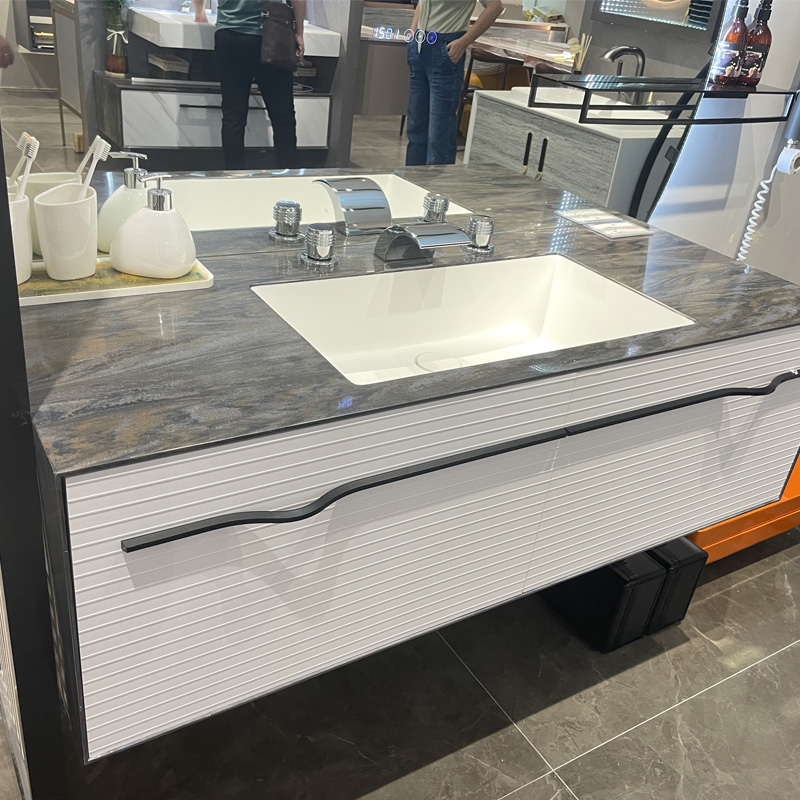
When renovating or designing a bathroom, homeowners increasingly seek eco-friendly materials that are both stylish and sustainable. Solid Surface vanity tops have emerged as one of the top choices in this category. Known for their durability, versatility, and sleek aesthetics, these vanity tops also offer significant environmental benefits. In this article, we will explore the environmental impact of Solid Surface vanity tops and why they are an excellent option for eco-conscious homeowners.

Solid surface vanity tops are made from a blend of acrylic, polyester resins, and natural minerals. This combination results in a smooth, non-porous surface that is not only visually appealing but also resistant to stains, moisture, and bacteria. Solid Surface Materials are versatile and can be molded into custom shapes, offering homeowners a high level of design flexibility.
However, beyond their functionality and aesthetics, the environmental impact of solid surface vanity tops is what makes them an appealing choice for those looking to minimize their carbon footprint.
One of the main environmental benefits of solid surface vanity tops is that many of these products are made using recycled materials. The resin used in these tops is often derived from post-consumer plastics, reducing the need for virgin materials. Additionally, natural minerals like alumina trihydrate, which is a byproduct of bauxite, are commonly used in the production of solid surface materials. These materials are often sourced from sustainable mining practices, ensuring that the impact on the environment is minimized.
Some brands take eco-friendliness a step further by using 100% recycled content in their solid surface materials, helping to divert waste from landfills and reduce the demand for new raw materials. This reduces the overall carbon footprint of the manufacturing process and contributes to a circular economy.
Solid surface vanity tops are incredibly durable, which means they have a longer lifespan compared to many other countertop materials. Because they are resistant to stains, scratches, and discoloration, they often outlast cheaper, less durable alternatives. This longevity helps reduce the frequency of replacements, which ultimately conserves resources and reduces waste over time.
By choosing a durable material like solid surface, homeowners can avoid the environmental costs associated with the disposal of countertops made from materials like laminate, which often wear out more quickly and contribute to landfill waste.
Another significant environmental advantage of solid surface vanity tops is their ease of repair. Unlike granite or marble, which may require complete replacement if damaged, solid surface materials can often be repaired with simple polishing or buffing. This means that any minor imperfections or scratches do not necessitate replacing the entire vanity top. Instead, repairs can restore the surface to like-new condition, extending the life of the product.
Moreover, solid surface vanity tops can be recycled at the end of their life. Many manufacturers offer programs to reclaim solid surface materials, breaking them down and reusing the components to create new products. This reduces the environmental impact by minimizing waste and encouraging material reuse.
When it comes to bathroom materials, the health and well-being of those using the space is also an important consideration. Solid surface materials have low levels of volatile organic compounds (VOCs), which are chemicals found in some building materials that can negatively affect indoor air quality. Many solid surface vanity tops are certified to meet low-VOC standards, ensuring that they do not emit harmful gases into your bathroom environment.
In addition, solid surface materials are typically non-toxic, meaning that no harmful substances are released during the production process or when the vanity top is installed in your home. This makes Solid Surface Countertops a safer choice for those concerned about the health implications of materials used in their homes.
The manufacturing process of solid surface vanity tops requires significantly less water compared to the production of other materials such as ceramic or stone countertops. Water use is a crucial factor when considering the environmental impact of a material, and solid surface materials tend to have a more sustainable water footprint, making them a more eco-friendly option.
Furthermore, the production of solid surface materials generally involves less energy compared to the mining, cutting, and shaping of natural stones like granite or marble, which requires extensive processing and energy consumption.
Solid surface vanity tops are highly customizable, allowing them to be cut and molded into a variety of shapes and sizes. This customization reduces the need for additional trimming or discarding excess material. Waste is minimized during the production process, which contributes to more efficient material use and reduces overall environmental impact.
This design flexibility also allows for smaller batch production runs, which helps minimize unnecessary mass production and the associated resource consumption.
In addition to the materials used, many solid surface vanity tops are produced by manufacturers who follow sustainable manufacturing practices. These practices can include using renewable energy sources, reducing waste through efficient production methods, and adopting zero-waste initiatives. Some manufacturers also adhere to environmental certifications such as ISO 14001, which demonstrates their commitment to environmental responsibility throughout their operations.
Solid surface vanity tops offer significant environmental advantages, making them an excellent choice for eco-conscious homeowners. From their use of recycled materials and low environmental impact during production to their durability and recyclability, solid surface materials are designed with sustainability in mind. Whether you're renovating your bathroom or building a new home, choosing a solid surface vanity top is a step toward a more eco-friendly and sustainable living environment.
By opting for solid surface, you not only get a stylish and functional vanity top but also contribute to a more sustainable future. With the growing demand for environmentally responsible products, manufacturers continue to innovate, ensuring that solid surface materials remain a viable and eco-friendly option for years to come.